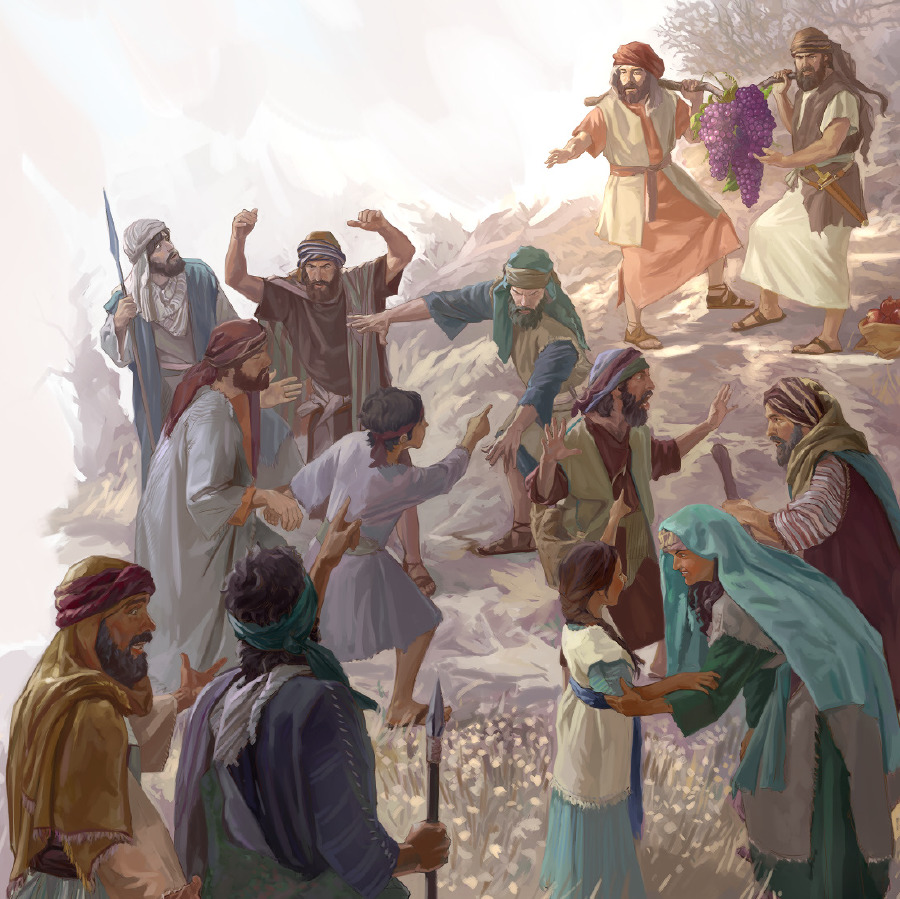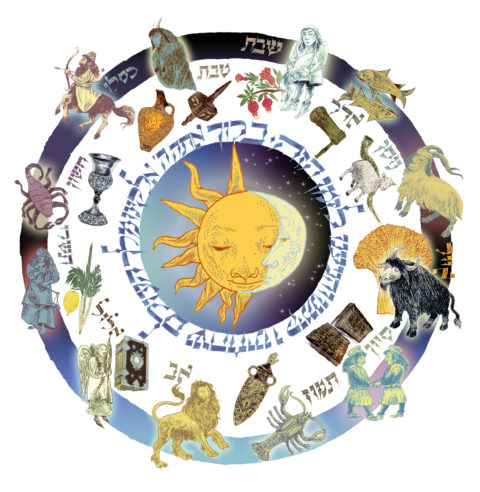Shelach Lecha – Numbers 13:1-15:41 (Jun. 4/5)

As the Torah Turns
Rabbi Lader’s Weekly D’var Torah
Shelach Lecha – Numbers 13:1-15:41 (Jun. 4/5)
Our Torah portion this week is Shelach Lecha – Numbers 13:1-15:41. Moses sent twelve men, leaders of their tribes, to reconnoiter the land. Ten of them came back with a negative report. The land is good, but unconquerable. The people are strong, the cities impregnable, the inhabitants are giants and we are grasshoppers. Only two of the men, Joshua and Caleb, took a different view. We can win. The land is good. God is on our side. With God’s help, we cannot fail. The usual understanding of what has happened is that Joshua and Caleb had faith, courage and confidence, while the other ten did not. But, truly, this is hard to understand. The ten – not just Joshua and Caleb – knew that God was with them. God had crushed Egypt. The Israelites had just defeated the Amalekites. How could these ten – leaders of their tribes – not know that they could defeat the inhabitants of the land? In his commentary on this portion, Rabbi Jonathan Sacks asks: What if the story were not this at all? What if it was not about faith, confidence, or courage? What if it was about understanding the situation and what happens when you don’t? Biblical Hebrew has two verbs that mean “to spy”: lachpor and le’ragel (from which we get the word me’raglim, “spies”). BUT — Neither of these words appear in our Torah portion. That is the point. Instead, no less than twelve times, we encounter the rare verb, la-tur. It was revived in modern Hebrew and means (and sounds like) “to tour.” Tayar is a tourist. There is all the difference in the world between a tourist and a spy. Malbim (19th century Bible commentator) explains the difference simply. Latur means to seek out the good. That is what tourists do. They go to the beautiful, the majestic, the inspiring. They don’t spend their time trying to find out what is bad. Lachpor and ler’agel are the opposite. They are about searching out a place’s weaknesses and vulnerabilities. That is what spying is about. The exclusive use of the verb latur in our portion – repeated twelve times – is there to tell us that the twelve men were not sent to spy. But only two of them understood this. The reason ten of the twelve men came back with a negative report is not because they lacked courage or confidence or faith. It was because they completely misunderstood their mission. They thought they had been sent to be spies. But the Torah never uses the word “spy” in our chapter. The ten simply did not understand what was going on. They believed it was their role to find out where the land was vulnerable, where its defenses could be overcome. They looked and could not find. The people were strong, and the cities impregnable. The bad news about the land was that there was not enough bad news to make it weak and thus conquerable. They thought their task was to be spies and they did their job. They were honest and open. They reported what they had seen. Based on the intelligence they had gathered, they advised the people not to attack – not now, and not from here.

Their mistake was that they were not meant to be spies. They were told latur, not lachpor or le’ragel. Their job was to tour, explore, travel, see what the land was like and report back. They were to see what was good about the land, not what was bad. So, if they were not meant to be spies, what was the purpose of this mission? The twelve were sent latur: to explore and report on the good things of the land so that the people would know it was worth fighting for. Their task was to tour and explore, not spy and decry. But only two of them, Joshua and Caleb, listened carefully and understood what their mission was: to be the eyes of the congregation, letting them know the beauty and goodness of what lay ahead, the land that had been their destiny since the days of their ancestor Abraham. Ten of the twelve men thought they were part of a story of espionage. The result was that they looked for the wrong things, came to the wrong conclusion, demoralized the people, destroyed the hope of an entire generation, and will eternally be remembered as responsible for one of the worst failures in Jewish history. It will take time – and a new generation – for the Israelites to be truly ready to enter the Promised Land. They will appreciate its beauty and its goodness and be ready to settle in their land. [The story continues in the book of Joshua, from which our Haftarah portion is taken.]
From Previous Weeks

Sefer Bemidbar – Num. 1:1-4:20 (May 14/15)
God commanded Moses to call each man by name…

BeHar/Bechukotai – 25:1-26:2/26:3-27:34 (May 7/8)
We are loved by unending love.

Emor – Lev. 21:1-24:23 (Apr. 30/May 1)
The “fixed times of the Eternal… the sacred occasions…”

Acharei Mot/Kedoshim – Lev. 16:1-18:30/19:1-20:27 (Apr. 23/24)
Morality comes from reading the tradition in its entirety…

